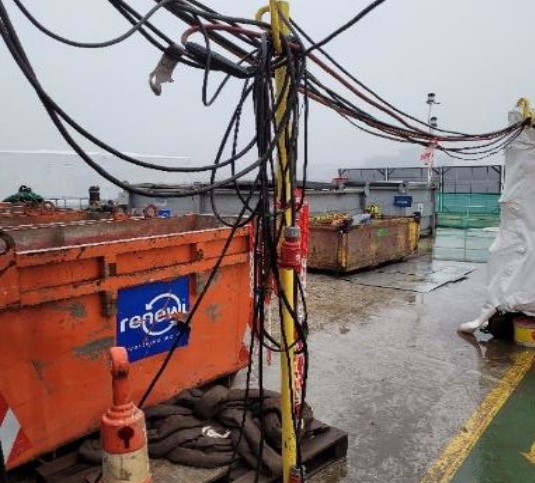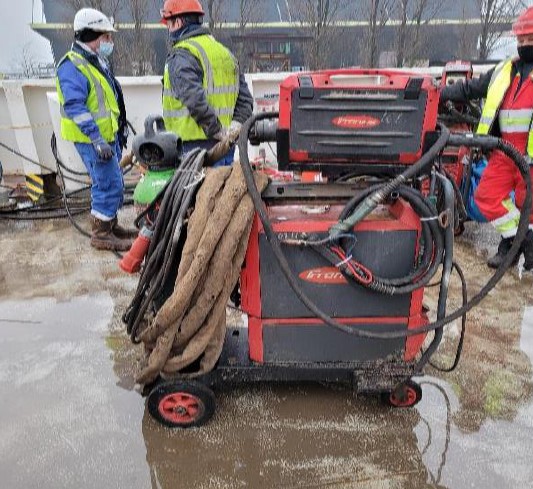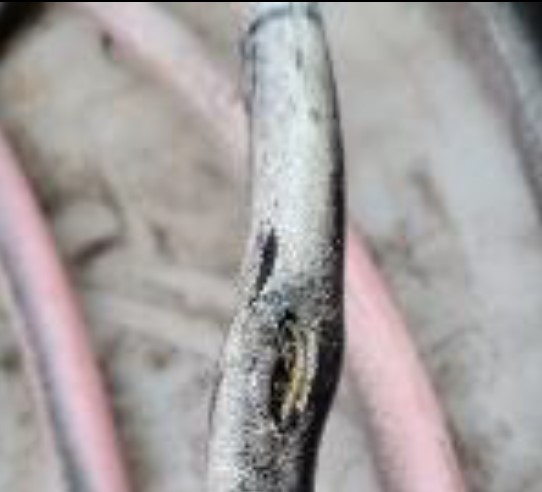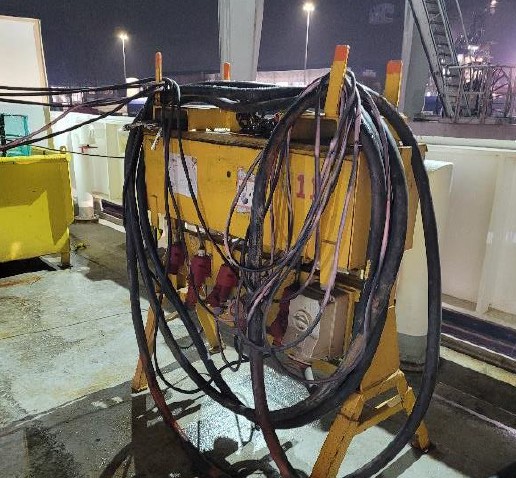Shipyard worker receives electrical shock
What happened
A shipyard worker received a serious electrical shock onboard a vessel in dry dock. The incident occurred when a shipyard welding team were setting up equipment outside on the main deck.
A welder was uncoiling a 380v extension lead which would be used to provide power to his welding plant. One end of the extension cable was connected to the shipyard electrical distribution box located on the main deck and the other was coiled up and suspended on a nearby cable pole.
As he routed the cable the welder had to walk through the pools of water which had gathered due to the inclement weather, to get the cable positioned correctly near his welding machine. Whilst carrying out this task, his hand came into contact with a damaged section of the extension cable which resulted in him receiving an electric shock.
As a result of the electric current passing through his body he was unable to release his grip on the cable. A nearby colleague heard him cry out and took decisive action to kick him clear of the cable. This was enough to release the cable from his hand. He reported to the local hospital for cautionary checks and no abnormalities were noted, and was released that evening.




What went wrong/what were the causes?
The following findings were identified:
- The electric cable outer sheathing was damaged with the inner cores exposed. The plug socket end cap was also broken off;
- The equipment was not visually inspected prior to use
- No RCD’s (residual current breaker) were installed in the electrical distribution boxes. (The shipyard was unaware of the availability of RCD’s that wouldn’t ‘trip’ all the time during welding operations).
- The welders gloves were wet as a result of the inclement weather.
Actions taken
- Ensure daily pre-use inspections are performed on all work equipment;
- Ensure any defective equipment is immediately removed from site and quarantined;
- Ensure appropriate protection devices are fitted to electrical circuits;
- Emphasise the importance of knowing how to isolate equipment in the event of an emergency;
- Ensure risk assessments consider the effects of inclement weather and that suitable controls are identified and implemented.
Members may wish to refer to:
Safety Event
Published: 8 April 2021
Download: IMCA SF 10/21
IMCA Safety Flashes
Submit a Report
IMCA Safety Flashes summarise key safety matters and incidents, allowing lessons to be more easily learnt for the benefit of all. The effectiveness of the IMCA Safety Flash system depends on Members sharing information and so avoiding repeat incidents. Please consider adding [email protected] to your internal distribution list for safety alerts or manually submitting information on incidents you consider may be relevant. All information is anonymised or sanitised, as appropriate.
IMCA’s store terms and conditions (https://www.imca-int.com/legal-notices/terms/) apply to all downloads from IMCA’s website, including this document.
IMCA makes every effort to ensure the accuracy and reliability of the data contained in the documents it publishes, but IMCA shall not be liable for any guidance and/or recommendation and/or statement herein contained. The information contained in this document does not fulfil or replace any individual’s or Member's legal, regulatory or other duties or obligations in respect of their operations. Individuals and Members remain solely responsible for the safe, lawful and proper conduct of their operations.
